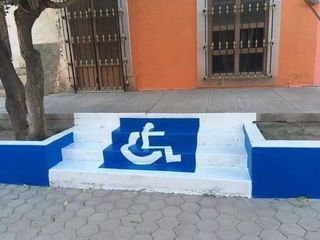Be flexible about what people need (and don't assume).
Posted onYour assumptions about facilitation and accommodation can be wrong. They're often shaped differently and smaller than you think. Awareness is key.

You might have come across the term "accommodation" in the context of disability. Maybe it was during a hiring process, and you were asked if you needed any accommodations. It could've been buying a ticket for an event. It can also be in a learning-environment. Or during travel.
You might have an idea what an accommodation could be. You could be thinking of audio versions of text, materials with a large print, materials in braille, specific software, sign language, the list goes on.
When you search for examples of accommodations on the web, they tend to be quite big. They might require preparations, physical changes to spaces or arrangements (like seating) or even specific people being present. But did you know accommodations can also be quite small? Sometimes the biggest difference is in awareness.
This week I had a funny situation. Or at least, I found it funny. I went to the dentist (not really the funny part). Before my appointment I went to the desk. I asked the person behind the desk to remind me that I had to pay after my appointment. They agreed to do so.
I have a collection of disabilities including an acquired brain injury. It means planning and organization don't come naturally, and I'm very focussed on doing those properly. So when I asked the person to remind me, that was actually a request for help. I was asking her to help me, and facilitate me and my disabilities.
After my appointment, I was not reminded of my open payment. And, not unexpected to me, I left without paying.
Now the dentist did hear my question, and the reply, and he was aware of my disabilities. Now you can imagine that a customer leaving without paying might make him angry. I would've understood if he were upset with me, maybe even angry.
But he wasn't angry at me. He wasn't happy though. He was wondering why I wasn't reminded of my payment. I specifically asked (I was actually a bit proud of that) but I wasn't reminded. He recognized my question as a request for help. He completely understood I had walked out!
The dentist told me when I was at the practice again. I laughed when I found out (and I paid of course).
The difference between these two people was awareness. My disability didn't need much help (I think), just a small reminder. People with disabilities are often very well schooled on the subject of their disability. They know very well what their needs are. Sometimes all we need to do is listen, be aware and be a bit flexible.
Got feedback? I bet you'd appreciate a group of accessibility experts. Share insights and grow together.
Join Discord!